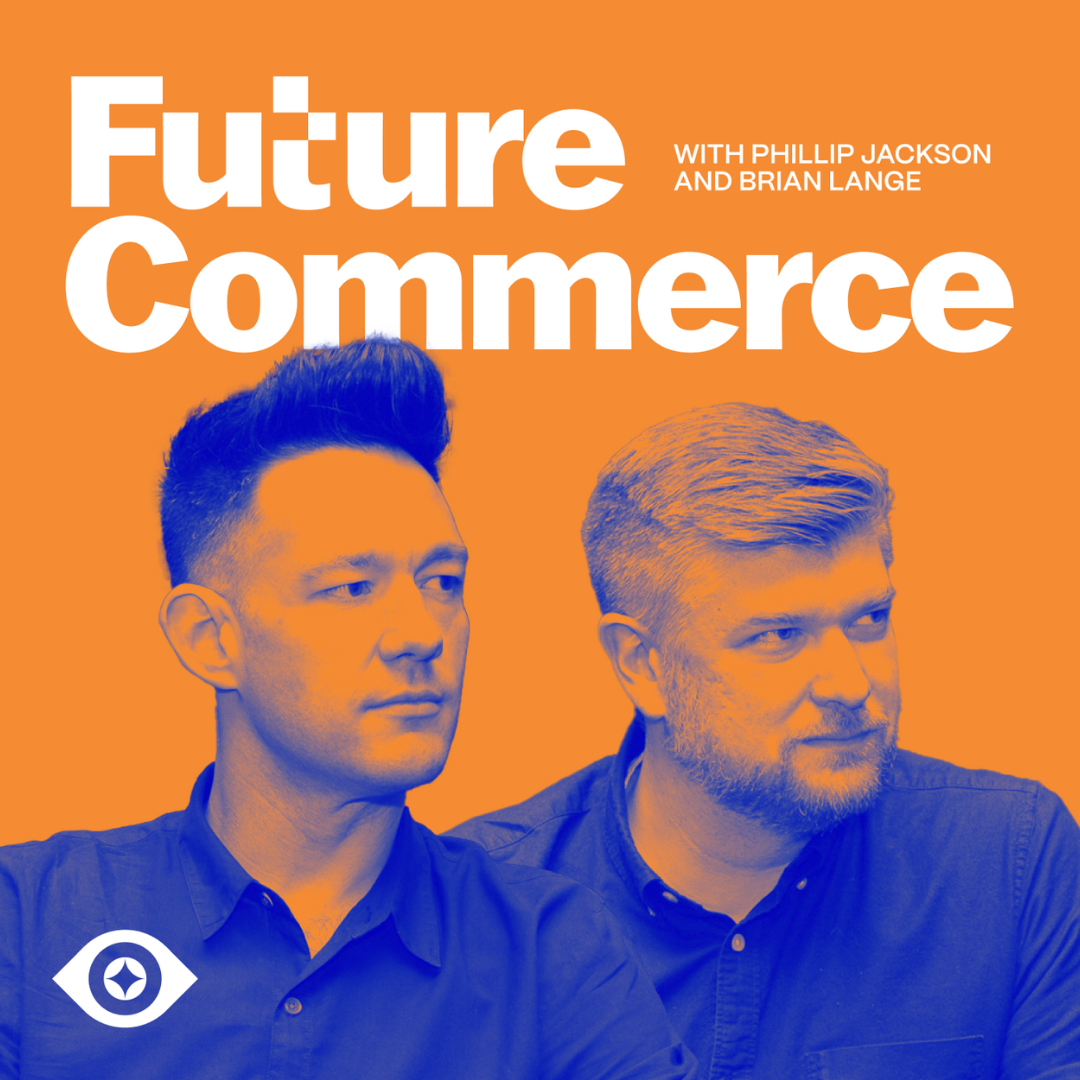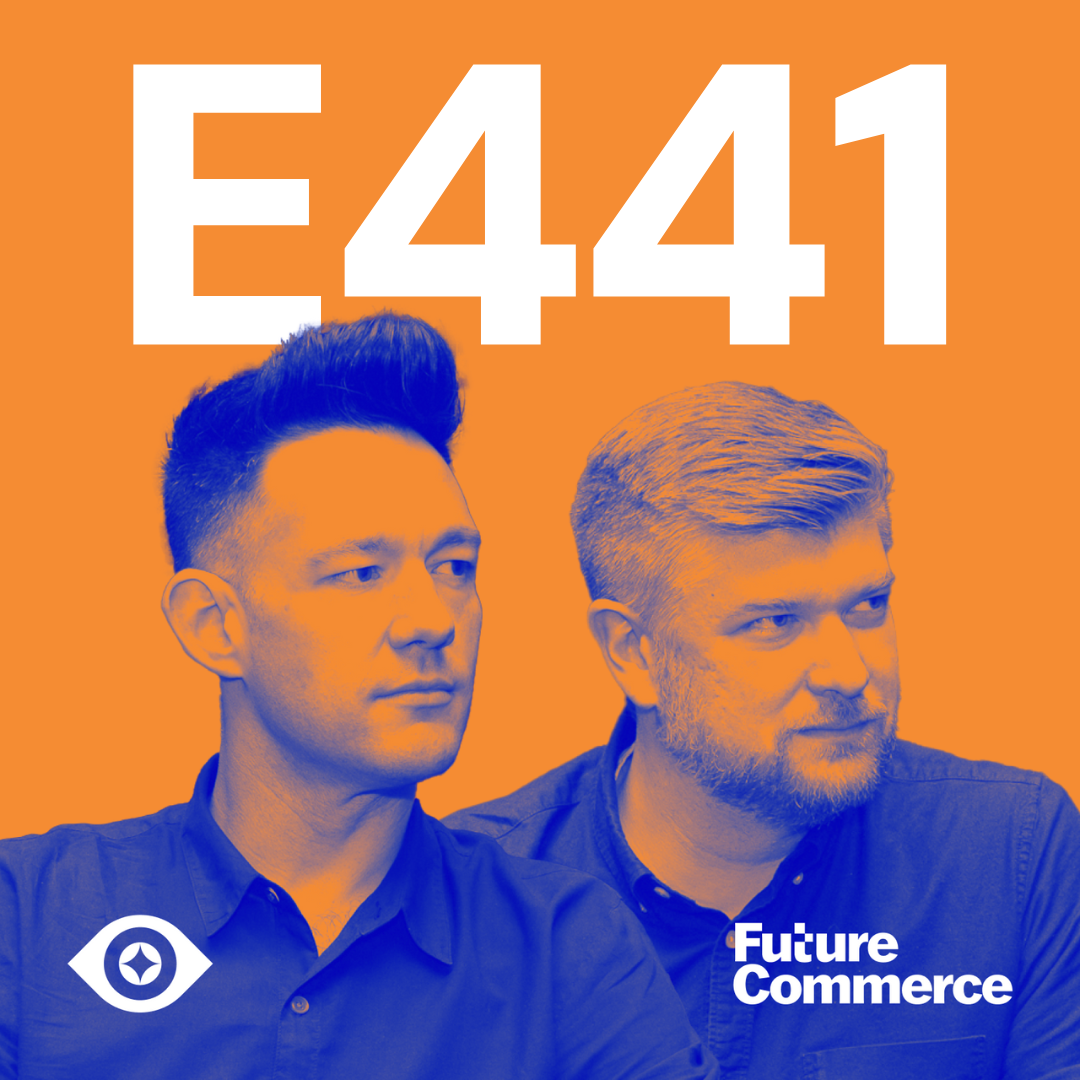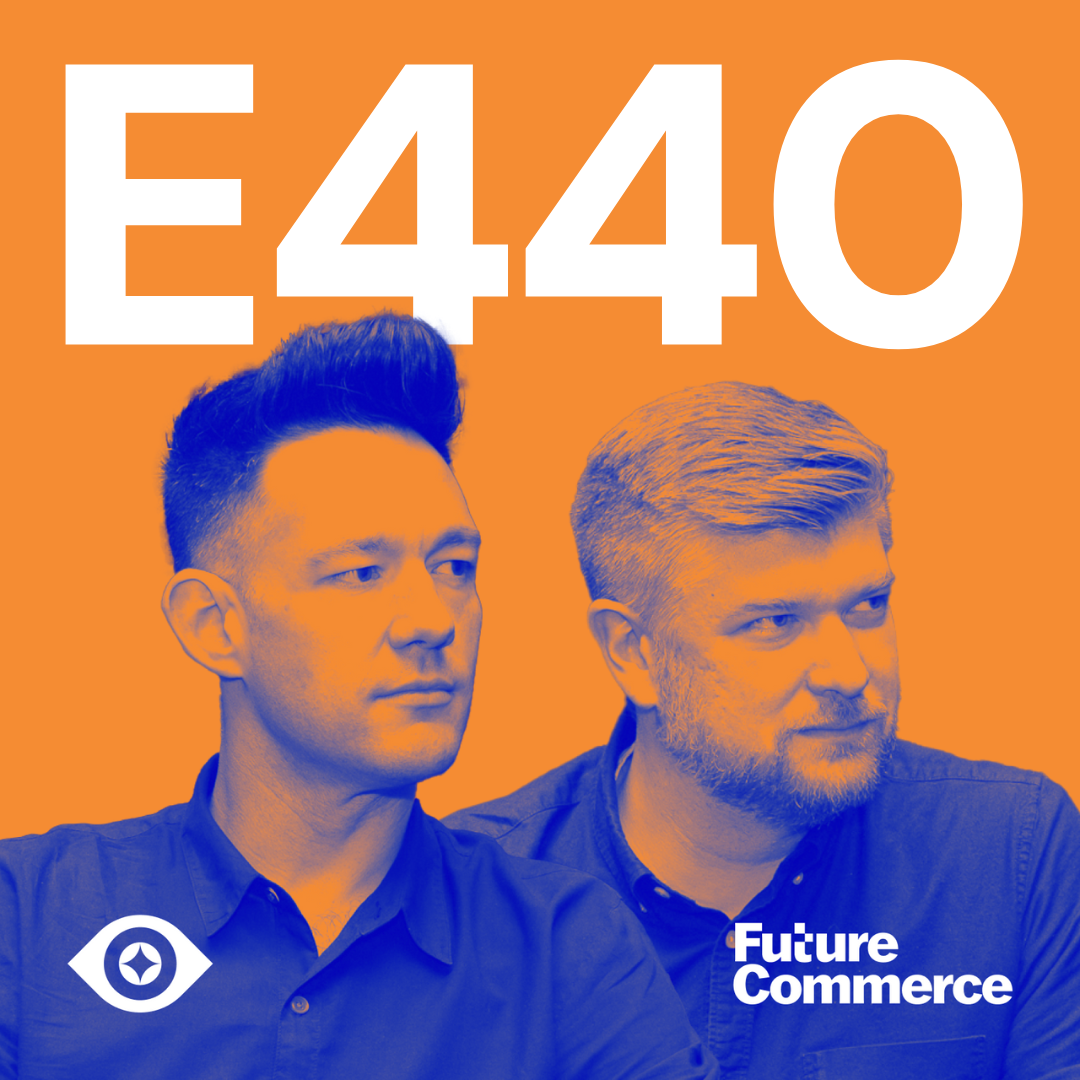When a brand discovers the needs of their consumers and then provides them with that well, that is magic. For Keely Copeland, Founder of Second Chance Initiative, building a brand was about solving a problem that was bigger than her. She saw a need, she dreamed of a different way to meet that need, and then she began to build a brand that would bring hope to not just consumers, but also the women involved with the creation of their products. Listen now to this episode of Archetypes!

When a brand discovers the needs of their consumers and then provides them with that well, that is magic. For Keely Copeland, Founder of Second Chance Initiative, building a brand was about solving a problem that was bigger than her. She saw a need, she dreamed of a different way to meet that need, and then she began to build a brand that would bring hope to not just consumers, but also the women involved with the creation of their products. Listen now to this episode of Archetypes!
Have any questions or comments about the show? Let us know on Futurecommerce.com, or reach out to us on Twitter, Facebook, Instagram, or LinkedIn. We love hearing from our listeners!
Keely: [00:00:00] This vessel starts empty. Choose what you fill it up with. Choose the inspiration that you want for the day. Choose the message that you want for the day, and then imagine it coming into your body. And that's exactly just that idea of the empty vessel is the space where you have a choice.
Kristen: [00:00:23] Welcome to Archetypes, a podcast by Future Commerce. I'm Kristen Vencel. Even with just a glance over the course of history, it's easy to see how important and powerful story has been throughout time. We humans thrive on story, whether we are the storytellers or the listeners. We feel connected to others through story. Archetypes is an exploration of the roles that we play in the story of a brand and features interviews with people who create the brands and experiences that are changing our world. It's an investigation into how we as people take part in these stories, ultimately making them our own. No matter who you are in this world, you engage in commerce. Commerce touches every living soul. We all have a role to play. We all have a story to tell. Archetypes is the story of commerce. Magician. A mysterious and almighty character that enchants us with their powers. The magician represents everything that a powerful consumer brand should aspire to be. They show us mystery and potential. These days, the power to make magic has shifted from the hands of a few specialists into those of ordinary people because of advances in technology and the availability of this technology. When a brand discovers the needs of their consumers and then provides them with that well, that is magic. For Keely Copeland, Founder of Second Chance Initiative, building a brand was about solving a problem that was bigger than her. She saw a need, she dreamed of a different way to meet that need, and then she began to build a brand that would bring hope to not just consumers, but also the women involved with the creation of their products. Welcome to this episode of Archetypes.
Phillip: [00:02:30] What drove you to creating this business that is inherently commerce-centric? You know, to put it in sort of in my frame, but it's an inherently commerce-centric business. But it's unlike any other commerce-centric business that we typically talk about on a show like a podcast or within business writings that I typically publish under Future Commerce.
Keely: [00:02:50] Second Chance started based on my personal life experiences. So I had struggled with addiction when I was young and I found myself in rehab at the ripe old age of 22. I worked really hard to get well in treatment, and when I left, I thought that I had done the hardest part of the journey. But what I found out is that there are really systems in place to take people by the hand when they say, "I've reached rock bottom and I need help." There are interventionists, there are detox specialists, there are inpatient centers, there are outpatient centers, and there are halfway houses. But there's not a lot of guidance for somebody who's reintegrating into society. And so there was a 22 year old who had worked in bars and restaurants and nannying and other jobs that really enabled the kind of drinking that I wanted to do. And I had to figure out how to get back into life. And it was hard. There wasn't guidance. And I found myself in a life position where I really wanted to get back into the recovery roots, and I started a little side project selling mental health friendly mugs through Instagram, which got a little bit of traction, just like a little baby project. And I went to Lynn University in Boca and I told them, "I have this little baby social enterprise that's trying to solve a societal problem or that's trying to start a conversation about mental health, but I think I could make it into a true social enterprise if I could hire women in recovery to help me grow this business and take it to the next level." [00:04:27] It was about how can we use commerce as a vehicle to create safe and secure jobs for women in recovery who are reentering the workforce so that they can come work in a healthy, secure environment for a few months, up to a year while they get back on their feet and then they can go back to either the career they used to have or something new altogether. [00:04:50]
Phillip: [00:04:50] I think it's incredibly powerful when somebody realizes that something doesn't exist in the world and they have to create it.
Keely: [00:04:57] It's how I met so many people who are trying to make a difference in the world.
Phillip: [00:05:01] What's the thing that helps you sort of form your own ideology about where you sit in the world?
Keely: [00:05:07] I have one unshakable belief, and that is this. I believe that if there is a Creator, a God, a divine intelligence, I believe that it is wiser than the wisest human, kinder than the kindest human, and more compassionate than the most compassionate human. Believing those things, it is impossible for me to believe in a punishing Creator. And so ultimately, I believe if there is a Creator and I don't know, it's benevolent, I choose to believe that if there is a Creator, if there is a God, it would never punish me for my beliefs. And so with that single core foundational belief, the rest of it is picking from the buffet. A few years ago when I was in the midst of running Second Chance and I was feeling very run down, I was in a yoga class in Delray Beach, and I started to think, "You know, if reincarnation were real, I'd feel a lot less stressed out right now because I wouldn't have to figure everything out in this lifetime." And so I decided to start believing in reincarnation. And it was as easy as that for me. It was just a this feels comforting to me. This feels gentle to me. This feels true to me. And in my belief system, I try on beliefs. I'll try it out for three months. I'm going to see how I feel about life if I believe reincarnation is real. Three months from now, if I feel more peaceful, if I feel more kind, if I feel more understanding, if I feel more compassionate, if I meet these kind of like these are the benefits of living a spiritual way of life are for me, then I'll keep believing it. I'll do the same with astrology. I'll do it with human design. I'll do it with shamanism. I'll do it with this, I'll do it with that. And a lot of things fail. There are a lot of things that I test out and I don't put into my spiritual bucket, but there are a lot of things that work. I don't think this approach would work for everyone. I think that there are a lot of people who would actually find this kind of repugnant, but it works for me.
Phillip: [00:06:58] I think this is profoundly human, actually, to try on beliefs. Not everyone is able to admit it or to recognize that that's what they do. We see this in professional circles a lot, and I have called it fashion for the longest time, where we adopt some truisms or principles that are only as true or only as principled as long as the group believes it to be true. And when the group decides that it no longer is true, it falls out of fashion. We try on beliefs. And in some ways, I think that's because in a commerce-centered business we are at the mercy of what our customers' needs and wants are in their desires are. And they actually as my business partner, Brian, would say, [00:07:48]there's a tug of war of power between the brand and the consumer. And in this tug of war of power brands believe that they wield some power in the organization. In fact, what we're realizing is that consumers wield unlimited power over all of us. We are at their mercy and we adapt our businesses to their desires, not the other way around. You can't shape their needs. You can only find or discover the thing that they want from you. [00:08:16] And if you do that, that's magic. For the last 5 or 6 years, you would say businesses who don't architect around these principles of making the world a better place or changing the conversation or creating social justice through their efforts would not exist in the future. It turns out that that's only as true as consumers will it to be true. Eventually, if that falls out of fashion, businesses who are doing that are left holding the bag of having to create all these programs that nobody really... It's not benefiting a consumer's desire to purchase from you any more than the business who is unencumbered, who doesn't have to live up to that sort of heightened expectation or belief.
Keely: [00:08:58] This time last year, I was planning to get on a plane and go to Ecuador to go work with these shamans that I love, and I found out that my dad was going into the hospital with Covid and he passed away from that. So I can tell you that this time last year, it didn't matter to me whether a brand was doing the best environmental and social causes. I cared about bringing coffee to the nurses who were trying to keep my dad alive. I feel like it's those kind of things that I think about. I don't think about it as much in the context of how a consumer's power comes in. But it is very interesting to think about how we all are going through these things that influence what matters to us. And it's the consumers who are going through it. It's the CEOs of the companies that are going through it. It's you that's going through it. It's the me that's going through it. And the way that our priorities change and shift and what gets me very excited about the work, not only that Second Chance is doing, but that I'm doing and the ways that you're trying to talk about commerce as a force of good is that I think that [00:10:08] after Covid, there's a lot more alignment of priorities based on values that actually matter. I think for a long time we were trapped in junk values as a society, and when the world stopped for a few years, we got back to remembering what matters. [00:10:25] And it's the things that the shamans could have told me, but until I lived it myself, until I felt it myself, until I experienced it myself. Until you did the same. Until my husband did the same. Until your wife did the same. All of those things. I really do feel like there is this huge power in this moment of people remembering what actually matters, whether it's the person running the business or whether the consumer buying from the business.
Phillip: [00:11:14] You've sort of created something in the world that allows other people to have and express rituals as well. There's something very powerful and intrinsic that I don't think it's a mistake that you've created vessels that people have to fill, and I think that's profoundly symbolic. What does that feel like to you? Is there something deeper there or am I overthinking it?
Keely: [00:11:33] And I will tell you this story. I will absolutely tell you the why mug story, the vessel, the fill your cup, the keep the cup full all the time. When I first started giving people the mugs that had those inspiring messages on it, the "Progress, not perfection," the "Begin," the "Breathe," I would give them a little exercise too. As the vessel starts empty, choose what you fill it up with. Choose the inspiration that you want for the day. Choose the message that you want for the day, and then imagine it coming into your body. And that's exactly just that idea of the empty vessel is the space where you have a choice. A full vessel you don't have a choice. You have to drink the coffee that's in it before you can put the tea in. So that's idea one about an empty vessel. The other thing also comes from a shamanic ceremony. And I was under the influence of a shamanic plant called San Pedro. And all of a sudden, like usually I found these ceremonies to be very pleasant. The woman who guides the ceremonies, she calls everyone in the circle up to sit in front of the shamanic fire one by one. And she asks you, "What advice do you have for yourself?" Because that's the whole piece about shamanic empowerment, taking back your personal power. It's not. What did Mr. Rogers say you should do with your life or what did Dumbledore say a good human does? It's what advice do you have for yourself? What advice are you taking back? You came on this retreat. You invested in getting yourself to Ecuador. How are you going to go back and use what you've learned while you're here? Because all of the medicine work that I do is really integration work. You go get these insights but the way that you show respect to the lineage is by actually applying it. And so anyway, we're in this ceremony that's usually beautiful and inspiring and all these different things. And I'm sitting in this ceremony and the next thing I know, everything inside of me is gone. I couldn't access love, I couldn't access hate, I couldn't access happiness, I couldn't access sadness. You could tell me a terrible thing happened and I wouldn't be able to feel grief. You could tell me I had just won something I wanted my whole life and I wouldn't be able to feel elation. I was an empty vessel. And one of my friends gave me a great compliment because later when I told him what happened, he said, "Kelly, you are welcome in any shamanic ceremony, because if that happened to you and you didn't lose it, the rest of us didn't know that was happening, you're good, you're allowed, you're in." But that's what happened. All of a sudden I went from having all of these overwhelming feelings of love and connection to just there being nothing. And I'm sitting on my mat in Ecuador being like, "This is all gone. Everything's gone." And I had these questions of exactly what you asked. Is this depressing? Is there nothing inside of me? Am I at my core just like nothing being? And these fears came up and the shaman, the way that she helped me resolve it is she told me, she said some personal things that I'll keep to myself, but what she told me is I had in that ceremony learned how to access the void. And the void is where creators go to collect ideas so that they can bring them back to the earth. And so [00:14:39] for every creator, I have come to believe that the emptying out is just as important as the taking in because there's no room for the new idea if your mind's already full, if you're thinking about what you have to do tomorrow and the paragraph that you want to write next or the podcast that you want to record next. And so an empty vessel is, in my mind, exclusively possibility. And it doesn't get much more optimistic than that. [00:15:05]
Kristen: [00:15:07] Check out the rest of Keely's moving story by getting your copy of the Archetypes Journal at ArchetypesJournal.com. Archetypes is brought to you by Future Commerce. Discover the world of Archetypes, take the Archetypes quiz, and get the Archetypes Journal at ArchetypesJournal.com. You can find more episodes of this podcast and all Future Commerce properties at FutureCommerce.com.

.png)

